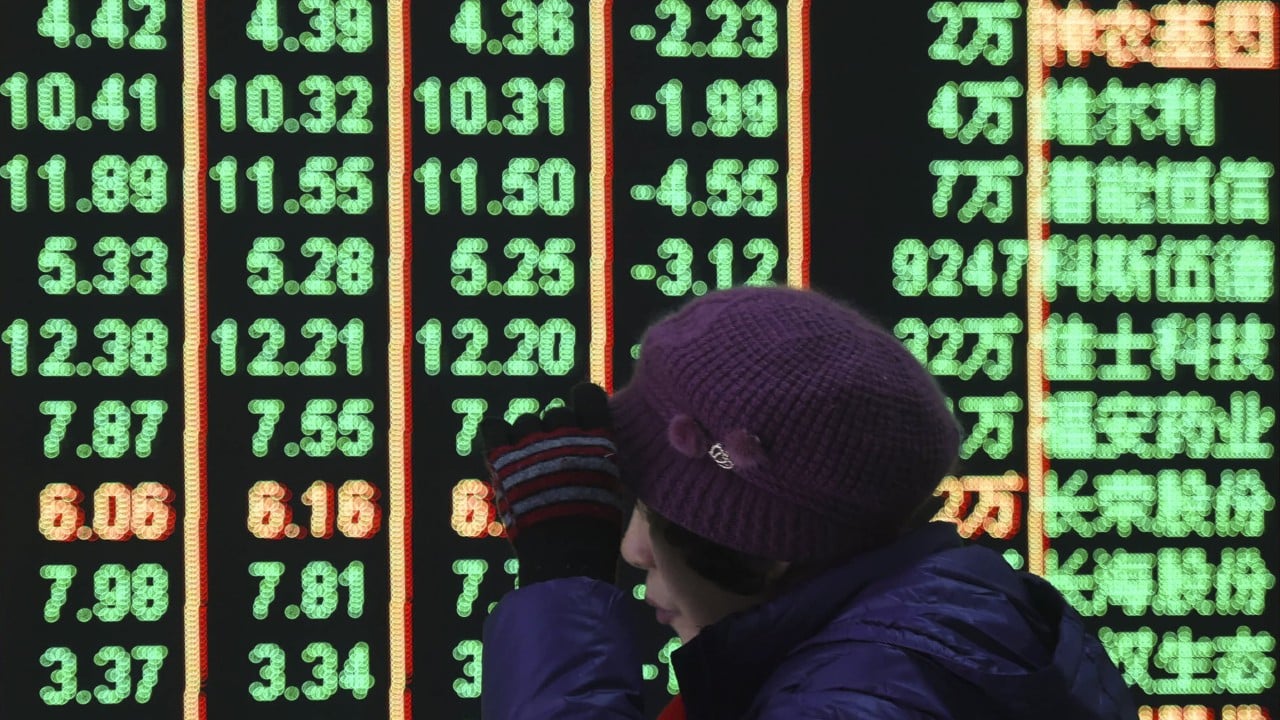A prominent Chinese economist has urged Beijing to recognise the stock market’s positive role in raising long-term funds to support China’s innovation amid the ongoing downward spiral of the exchanges within the world’s second-largest economy.
Lian Ping said that the prolonged downturn in the capital market, particularly the stock market, had severely impacted direct financing for companies, with no sign of improvement.
“What is more critical now is to address the stock market’s issues to ensure it flourishes and protects investors’ interests, providing them with sustainable and satisfactory returns on their investments,” the chairman of the China Chief Economists Forum – a government advisory think tank – told a conference in Guangzhou on Thursday.
“This is a market that has a future, and we are currently working towards that.”
China has a large gap between the state of the stock market and what the market expects to achieve, which Lian said could not be solved simply by establishing boards such as the Growth Enterprise Market.
Meanwhile, a thriving stock market can boost upstream venture capitalists and provide confidence to the downstream banking industry, as well as more sustainable and long-term financial support for tech firms compared to banks, added Lian.
Banks are not patient capital, instead, they are prudent capital
“Banks are mainly funded by deposits, and it is important to protect the interests of depositors, who avoid seeing risk and seek stability,” he said, adding that the pursuit of depositors is not the best solution for supporting tech firms.
“Banks are not patient capital, instead, they are prudent capital.”
China’s stock market is in the midst of prolonged turmoil, having fallen sharply in recent weeks, as a series of weak economic data raised recovery concerns.
On Tuesday, China’s benchmark CSI 300 index and the Shanghai Composite Index fell to more than five-month lows.
By Thursday afternoon, mainland China’s Growth Enterprise Market had fallen by 1.31 per cent, while Hong Kong’s Hang Seng Index had fallen by 0.12 per cent, with nearly 3,300 individual stocks down in Shanghai, Shenzhen and Beijing.
A total of 10.65 million people had opened accounts in the first six months of this year, a year-on-year decrease of 25.45 per cent, according to the Shanghai Stock Exchange.
China’s growth momentum is showing signs of slowing, with continued sluggishness in consumption and real estate, while external demand, which had supported growth in the first half of the year, experiencing external friction, further eroding investor confidence.
The subbed performance has also bred disappointment and scepticism in the market, with Chen Zhiwu, a chair professor of finance at the University of Hong Kong, having called for China to close the A-share market.
“For the mainland, I would advocate just shutting down the A-share market,” Chen told a conference in mid-July, adding that China was returning to a state-planned economy rather than a market-oriented one.
“Since the government is re-regulating micro-economy, it simply doesn’t need to spend so much more on [administrative] costs and pay a lot of leaders who have no interest in finance.
“Instead, China should focus on developing banking and insurance-based finance, as well as wealth management funds, and the underlying stock exchange are not necessarily traded domestically but can be traded offshore.”
Chen’s radical statement has subsequently been censored on Chinese social media platforms, including Weibo and Baidu.


